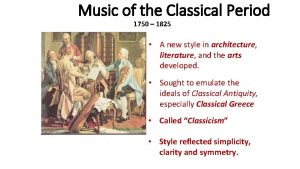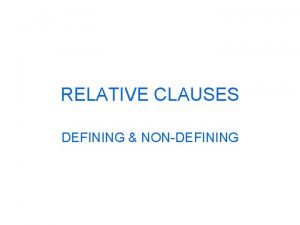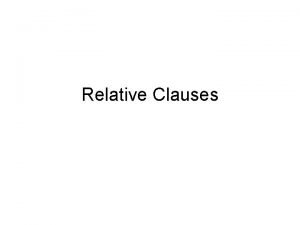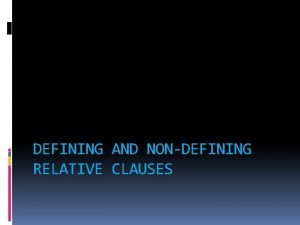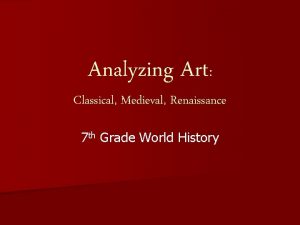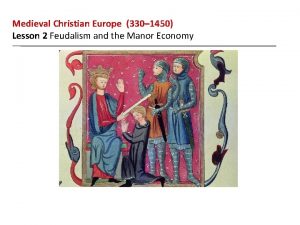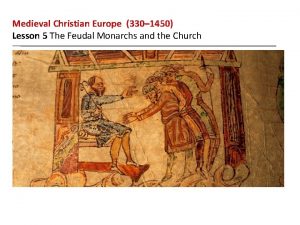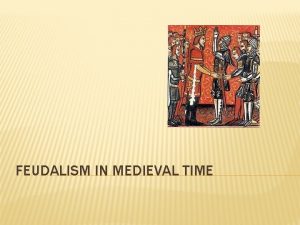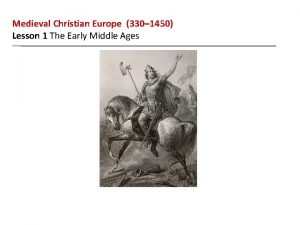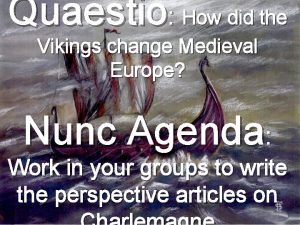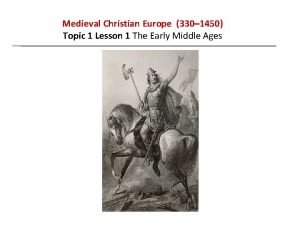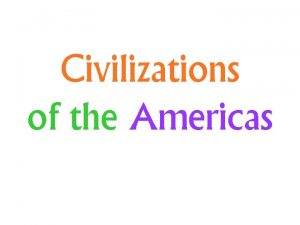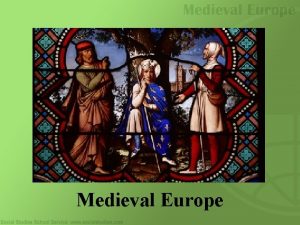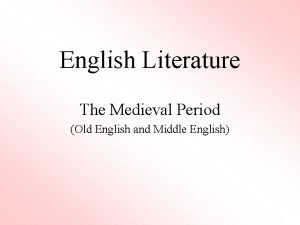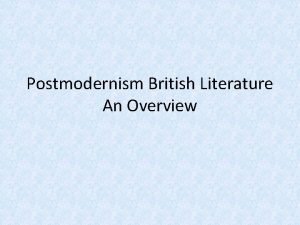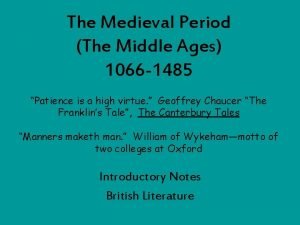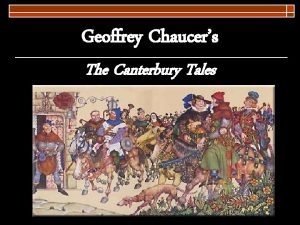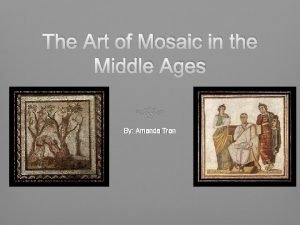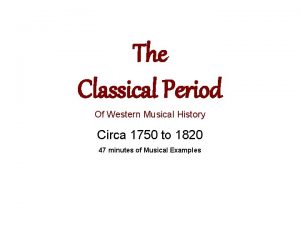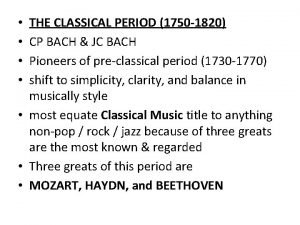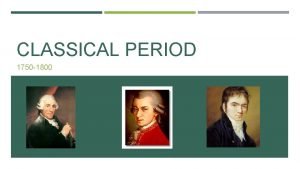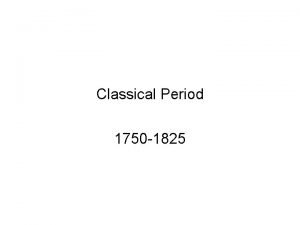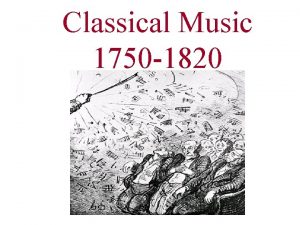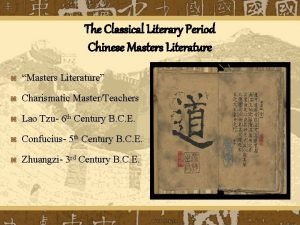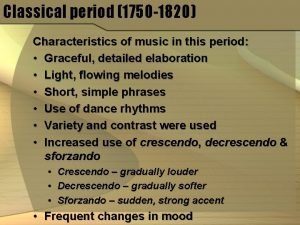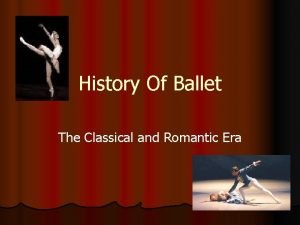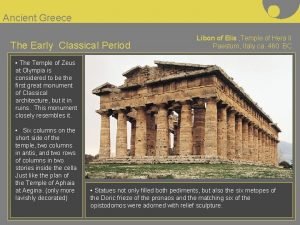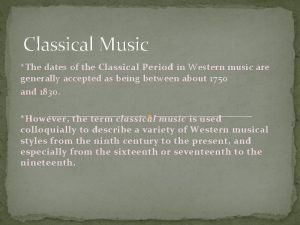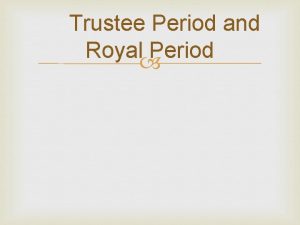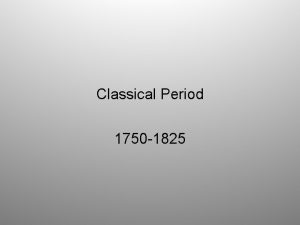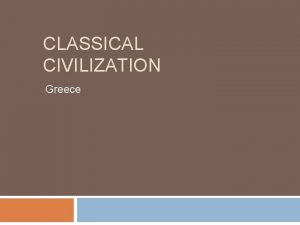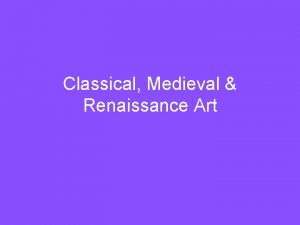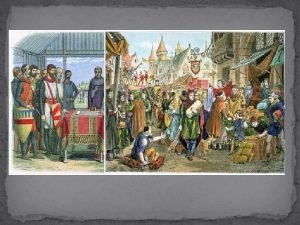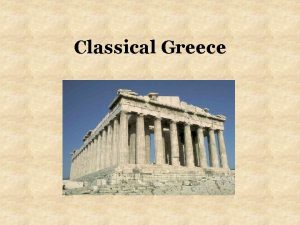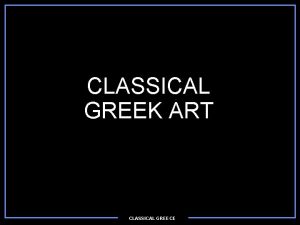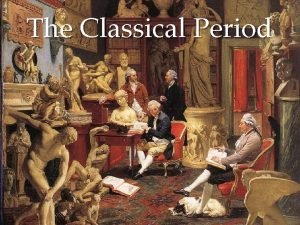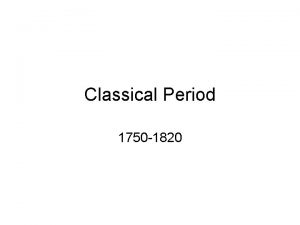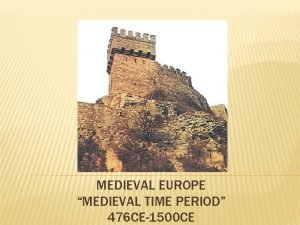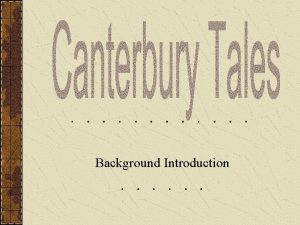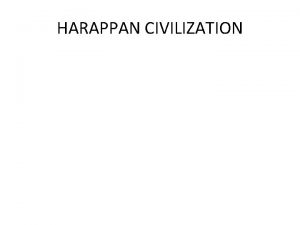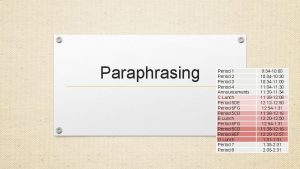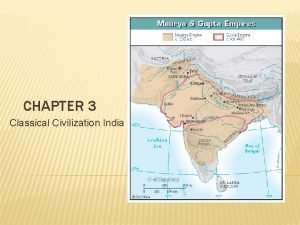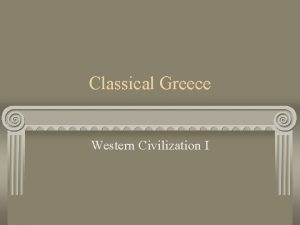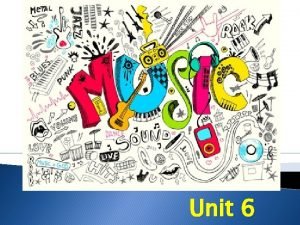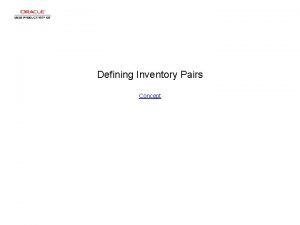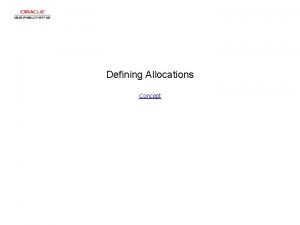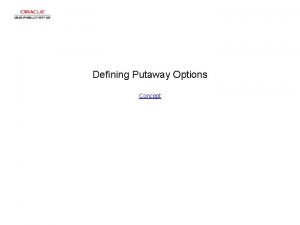Medieval Europe Defining the Medieval Period Classical Civilization



































- Slides: 35

Medieval Europe

Defining the Medieval Period Classical Civilization (Beginning of European Civilization � Roman Empire) Medieval Europe (Fall of Rome �Before the Renaissance) Modern Times (Renaissance �Today) The time period has also been called the “Middle Ages” and the “Dark Ages”

Medieval Europe: Stages Early Medieval Europe (c. 500– 1000) High Medieval Europe (c. 1000– 1300) Late Medieval Europe (c. 1300– 1500)

Feudalism • • • A French vassal receiving a feudal grant from the king A political, economic, and social system in which land was allocated in exchange for services; roles and obligations were clearly defined for all participants Grew out of Roman practices of clientage/patronage Originally developed as a means of protection and defense

Roles in the Feudal System • • • Lord Vassal Fief Manor Serf Feudal serfs

Peasants Lesser Nobles/Knights Nobles Monarch The Feudal Power Relationship

MEDIEVAL LIFE Cooperation and Mutual Obligations KING MANORIALISM: ECONOMIC SYSTEM FEUDALISM: POLITICAL SYSTEM § Decentralized, local government § Dependent upon the relationship between members of the nobility § Lord and his vassals administered justice and were the highest authority in their land Fief and Peasants Military Aid Loyalty LORDS (VASSALS TO KING) Food Protection Shelter Military Service Homage KNIGHTS (VASSALS TO LORDS) Food Protection Farm the Land PEASANTS (SERFS) Shelter Pay Rent § Agriculture the basis for wealth § Lands divided up into selfsufficient manors § Peasants (serfs) worked the land paid rent In exchange for protection § Barter the usual form of exchange

Nobles and Vassals • Nobles divided their land among the lesser nobility, who became their vassals. Many of these vassals became so powerful that the kings had difficulty controlling them.

Knights • Elite military soldiers • Usually from the noble classes • Stages of training: page, squire, knight • Chivalry Statue of a medieval knight

Chivalry • System of ideals and social codes governing behavior of knights and gentlewomen • Word chivalry comes from French and related to cheval, word for “horse” • Code of conduct • Knights first obligation – defend his lord, king, and the Christian Faith • Code covered how to treat a lady and how to help others

The Peasants • At the lowest level of society were the peasants, also called serfs or villeins. • The lord offered his peasants protection in exchange for living and working on his land.

Hard Work & High Taxes • Peasants worked hard to cultivate the land produce the goods that the lord and his manor needed. • They were heavily taxed and were required to relinquish much of what they harvested.

Bound by law and custom… • It is the custom in England, as with other countries, for the nobility to have great power over the common people, who are serfs. This means that they are bound by law and custom to plough the field of their masters, harvest the corn, gather it into barns, and thresh and winnow the grain; they must also mow and carry home the hay, cut and collect wood, and perform all manner of tasks of this kind. -- Jean Froissart, 1395


Women: Household Chores • Husband’s or father’s social standing determined degree of respect she commanded. • Whether they were nobles or peasants, women held a difficult position in society. • They were largely confined to household tasks such as cooking, baking bread, sewing, weaving, and spinning.

Urban Life • Few serfs were left in Europe by the end of the Middle Ages, and the growing burgher class became very powerful. Hard work and enterprise led to economic prosperity and a new social order. Urban life brought with it a new freedom for individuals.

The Crusades • 1095– 1291 • Goals of the Crusades: – Convert nonbelievers – Eliminate heretics – Regain control of the Holy Land from the Muslims Louis IX of France leads crusaders against Damietta, in Egypt

Pope Urban II • 1095: Pope Urban II’s speech – Promised spiritual rewards – Thousands responded to the call for religious warriors Pope Urban II calling for the Crusades

The First Crusade (1096– 1099) • 1096: Mostly French knights • Captured Jerusalem in 1099 • Crusader states • Jerusalem taken by Muslim forces under Saladin in 1187 A depiction of the capture of Jerusalem by crusaders

Other Crusades • Major and minor crusades took place between the 12 th and 14 th centuries • Christians unsuccessful at recapturing the Holy Land • Popes invoked crusades more often and for nonspiritual purposes • Legacy of the Crusades: – Increased trade – Religious tensions arose The Crusade on Constantinople

The Martyrdom of Thomas á Becket

Martyrdom of Thomas á Becket • Anglo-Saxon who was Lord Chancellor under King Henry II. • Appointed Archbishop of Canterbury - head of the Church in England. • Retained loyalty to the Pope - Church of Rome. • Killed by four of Henry’s soldiers. • Martyrdom led to public reaction against the monarchy.

Martyrdom of Thomas á Becket • Negative effect: Corruption among the clergy became a major problem. • Positive effect: Fostered international culture through its religious system. • Latin was the international language of statesmen. • Church was center for education and publications.

The Magna Carta • In 1215, the English barons formed an alliance that forced King John to sign the Magna Carta. It limited the king's powers of taxation and required trials by jury. It was the first time that an English monarch was subject to the law.

The Magna Carta • The Magna Carta – “The Great Charter”. • Signed by King John in 1215. Brother of Richard the Lionhearted and son of Henry II. Had backing of the Pope, but own men turned against him. • Marked the return to more democratic form of government. • Originally for aristocrats. • Basis for constitutional law that protected all citizens. • Forerunner of our own constitutional and legal system.

The Late Middle Ages • 1300– 1500 • War • Black Death Battle of Agincourt, 15 th century

The Hundred Years’ War: Causes • The Hundred Years’ War: 1337– 1453 • Struggles between French and English royal families over who would rule either country • Conflicts over territory, trade English ruler Edward III

The Hundred Years’ War: Battles • England had early victories • The French eventually expelled the British from mainland Europe • English military innovation: the archer The Battle of Crecy, the first major battle of the Hundred Years’ War

The Plague

Spread of the Plague • Started in China • Reached Europe in 1347 via a merchant ship on the island of Sicily • 1347– 48: southern Europe • 1349– 50: central Europe and the British Isles

Popular Medical “Cures” for the Plague A costume worn by doctors to ward off the Plague • Doctors wore strange costumes • Bathing in human urine • Wearing excrement • Placing dead animals in homes • Wearing leeches • Drinking molten gold and powdered emeralds • Burning incense to get rid of the smell of the dead

Effects of the Plague • Killed 25– 30 million Europeans • Undermind faith in religion • Economy • Culture influenced

Four Humors • The body was viewed as a part of the universe, a concept derived from the Greeks and Romans. Four humors, or body fliuds, were directly related to the four elements. – – Fire: yellow bile or choler Water: phlegm Earth: black bile Air: blood. • These four humors had to be balanced. Too much of one was thought to cause a change in personality--for example, too much black bile could create melancholy.

Bloodletting • Medicine was often a risky business. Bloodletting was a popular method of restoring a patient's health and "humors. " Early surgery, often done by barbers without anesthesia, must have been excruciating.

Legacy of the Medieval Era • Transitional period • New kingdoms evolved • The Church became a dominant force • Modern institutions originated
 1750s music
1750s music Defining relative clause meaning in telugu
Defining relative clause meaning in telugu Defining/non-defining relative clauses
Defining/non-defining relative clauses Defining non defining farkı
Defining non defining farkı Relative clauses defining and non defining
Relative clauses defining and non defining Non relative clause
Non relative clause Non-defining relative clauses
Non-defining relative clauses Classical medieval and renaissance art
Classical medieval and renaissance art Medieval christian europe part 2
Medieval christian europe part 2 Unit 8 lesson 5 medieval christian europe
Unit 8 lesson 5 medieval christian europe Medieval hierarchy
Medieval hierarchy Medieval kingdoms in europe lesson 1
Medieval kingdoms in europe lesson 1 How did the vikings change medieval europe
How did the vikings change medieval europe Topic 1 medieval christian europe
Topic 1 medieval christian europe Pg 116
Pg 116 Olmec time period
Olmec time period Civilization time period
Civilization time period Characteristics of medieval period in english literature
Characteristics of medieval period in english literature Literary movements in british literature
Literary movements in british literature Medieval period
Medieval period Medieval period 1066 to 1485
Medieval period 1066 to 1485 Canterbury tales medieval
Canterbury tales medieval Middle ages mosaics
Middle ages mosaics Orchestra in classical period
Orchestra in classical period Bach classical period
Bach classical period In the classical period serious composition was flavored by
In the classical period serious composition was flavored by Classical period dates
Classical period dates Classical period timeline
Classical period timeline Music of classical period 1750 to 1820
Music of classical period 1750 to 1820 Classical literary period
Classical literary period Classical period characteristics
Classical period characteristics Classical ballet period
Classical ballet period Opistodomos
Opistodomos Dates of classical period
Dates of classical period Characteristics of neoclassic arts
Characteristics of neoclassic arts Trustee period and royal period
Trustee period and royal period
